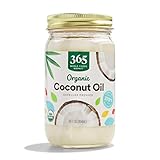Yes, coconut oil is good for high-heat cooking. Its high smoke point of around 350°F (177°C) for unrefined and 450°F (232°C) for refined makes it stable under heat, minimizing the breakdown of fats and the production of harmful compounds.
From personal experience, I’ve found that coconut oil performs exceptionally well for frying and sautéing, particularly in dishes where the mild coconut flavor complements the recipe. When I use refined coconut oil, I can cook at higher temperatures without worrying about the oil smoking, making it an excellent choice for stir-frying or grilling.
| Type of Coconut Oil | Smoke Point | Best Uses | Flavor |
|---|---|---|---|
| Unrefined (Virgin) | 350°F (177°C) | Baking, light frying, sautéing | Mild coconut flavor |
| Refined | 450°F (232°C) | Stir-frying, deep frying, grilling | Neutral, minimal flavor |
| Stability at Heat | High (due to saturated fats) | Suitable for high-heat applications | Retains structure at high temps |
However, it’s worth noting that unrefined (virgin) coconut oil retains more of its natural flavor and nutrients but has a lower smoke point. This makes it suitable for moderate-heat cooking like baking or light frying. For truly high-heat cooking, refined coconut oil is the better option as it can withstand higher temperatures without burning.
What Is High-Heat Cooking?

High-heat cooking refers to cooking methods like frying, roasting, searing, and grilling that typically require temperatures between 350°F to 450°F (175°C to 232°C) or even higher. These methods are used to quickly cook food, often resulting in a crispy exterior and tender interior. However, cooking at high temperatures requires oils that can withstand the heat without breaking down. When oils exceed their smoke point, they begin to degrade, releasing harmful free radicals and toxic fumes.
What Is the Smoke Point of Coconut Oil?
The smoke point is the temperature at which oil begins to smoke and decompose, producing undesirable chemicals and an unpleasant flavor. When an oil reaches this point, it loses its beneficial properties, and the smoke can release harmful compounds like acrolein, a potential carcinogen.
Types of Coconut Oil and Their Smoke Points
| Type of Coconut Oil | Smoke Point (°F) | Smoke Point (°C) |
|---|---|---|
| Unrefined (Virgin) | 350°F | 177°C |
| Refined Coconut Oil | 400°F – 450°F | 204°C – 232°C |
Unrefined (Virgin) Coconut Oil:
Unrefined or virgin coconut oil undergoes minimal processing, preserving its natural coconut flavor and many of its nutrients, like antioxidants and vitamins. However, its lower smoke point of 350°F (177°C) makes it unsuitable for very high-heat cooking methods like deep-frying or stir-frying. It’s better suited for low to medium-heat cooking or baking, where temperatures stay below its smoke point.
Refined Coconut Oil:
Refined coconut oil is processed to remove impurities, resulting in a higher smoke point of up to 450°F (232°C). This makes it a better option for high-heat cooking like frying, roasting, or searing. Refined coconut oil also has a neutral flavor, unlike virgin coconut oil, which makes it versatile in dishes where the distinctive coconut flavor might not be desired.
Coconut Oil for High-Heat Cooking
Yes, coconut oil, especially refined coconut oil, is a great choice for high-heat cooking due to its high smoke point and the stability provided by its saturated fat content. Below are the reasons why coconut oil works well for high-temperature methods like frying, roasting, and grilling.
Saturated Fat Content

Coconut oil contains around 90% saturated fats, making it more resistant to heat degradation than oils rich in unsaturated fats, like vegetable or seed oils. This stability is key to its performance in high-heat cooking:
- Saturated Fats: ~90%
- Monounsaturated Fats: ~6%
- Polyunsaturated Fats: ~2%
The saturated fats in coconut oil are predominantly in the form of lauric acid, a medium-chain triglyceride (MCT) that is less prone to oxidation when exposed to heat. This prevents the oil from breaking down and releasing harmful compounds, which is critical in high-heat applications.
Stability at High Temperatures
Due to its high saturated fat content, coconut oil remains stable even when exposed to temperatures that might cause other oils to oxidize or degrade. In contrast, oils rich in polyunsaturated fats (like canola, sunflower, or soybean oil) are less stable and more prone to oxidation.
When oils oxidize, they form free radicals, which are unstable molecules that can cause cellular damage and contribute to the development of chronic diseases such as:
- Heart disease
- Cancer
- Inflammatory conditions
The high heat stability of coconut oil, especially refined coconut oil with its smoke point of up to 450°F (232°C), makes it a safer and more reliable choice for frying, searing, and grilling compared to many other oils. By resisting oxidation, coconut oil not only retains its nutritional benefits but also reduces the risk of generating harmful byproducts during cooking.
Health Implications of Cooking with Coconut Oil
Benefits
- Stable at High Temperatures: As mentioned, coconut oil is less likely to break down into harmful compounds when used in high-heat cooking due to its saturated fat content.
- Rich in Lauric Acid: Lauric acid is a medium-chain fatty acid found in coconut oil, which is believed to have antimicrobial and immune-boosting properties. Some research suggests that medium-chain fatty acids are metabolized differently by the body, potentially leading to quicker energy expenditure and even weight loss.
- Neutral or Slight Coconut Flavor: Refined coconut oil has a neutral taste, while unrefined oil offers a mild coconut flavor. This versatility makes coconut oil a good option for various dishes, from stir-fries to baked goods.
Potential Drawbacks
- High Saturated Fat Content: While the stability of saturated fats in coconut oil is beneficial for cooking, there has been ongoing debate about whether a diet high in saturated fat may increase the risk of heart disease. Some health organizations recommend limiting the intake of saturated fats, although the specific effects of coconut oil’s fats may differ from those of animal-based saturated fats.
- Not Ideal for Every Cooking Application: Though coconut oil is stable at high heat, other oils with different flavor profiles or health benefits (like olive oil or avocado oil) may be more suitable for certain dishes. Coconut oil’s flavor and texture can be overpowering in delicate recipes.
Comparing Coconut Oil with Other Oils for High-Heat Cooking
Here’s how coconut oil compares to other popular cooking oils:
| Type of Oil | Smoke Point (°F) | Smoke Point (°C) | Health Considerations |
|---|---|---|---|
| Refined Coconut Oil | 400°F – 450°F | 204°C – 232°C | High in stable saturated fats, good for frying |
| Virgin Coconut Oil | 350°F | 177°C | Suitable for low to medium heat, rich in nutrients |
| Olive Oil (Extra Virgin) | 375°F | 191°C | High in antioxidants, not ideal for high heat |
| Avocado Oil | 520°F | 271°C | Rich in monounsaturated fats, excellent for frying |
| Vegetable Oil (Canola) | 400°F | 204°C | High in polyunsaturated fats, prone to oxidation |
Practical Tips for Using Coconut Oil in High-Heat Cooking
- Opt for Refined Coconut Oil: For frying, roasting, and other high-heat methods, use refined coconut oil because of its higher smoke point.
- Avoid Heating Above Smoke Point: Keep an eye on the temperature and avoid exceeding 450°F (232°C) when using refined coconut oil. If the oil starts to smoke, it has overheated, and you should discard it to avoid the release of toxic compounds.
- Use for Searing and Frying: Coconut oil is great for pan-frying vegetables, searing meat, or even deep-frying small batches of food. It adds a crisp texture without deteriorating at high heat.
- Store Properly: Coconut oil is solid at room temperature but can become liquid in warmer environments. To maintain its quality, store it in a cool, dark place, and avoid repeated heating and cooling.
Pros and Cons of Using Coconut Oil for High-Heat Cooking
Pros:
- High smoke point (refined version)
- Stable saturated fats that resist oxidation
- Neutral flavor in refined versions, mild coconut flavor in unrefined
- Potential health benefits due to medium-chain fatty acids like lauric acid
Cons:
- High in saturated fat, which may be a concern for some diets
- Strong coconut flavor in unrefined oil may not suit all dishes
- Not as heat-resistant as some oils like avocado oil
Does Coconut Oil Lose Nutritional Value When Heated?
Coconut oil retains most of its nutritional value when heated, especially at high temperatures. Its saturated fats remain stable under heat, meaning they don’t oxidize easily like polyunsaturated fats found in other oils. This stability ensures that the oil maintains its benefits, such as boosting metabolism and supporting heart health. However, repeated heating can degrade the quality over time, so it’s best to avoid reusing coconut oil multiple times for frying or cooking at extremely high temperatures.
Should I Use Refined or Unrefined Coconut Oil for Cooking?
Refined coconut oil is more suitable for high-heat cooking than unrefined coconut oil. Refined coconut oil has a higher smoke point of 450°F (232°C), making it ideal for frying, roasting, and baking. It also has a neutral flavor, which won’t overpower your dish. Unrefined (or virgin) coconut oil, on the other hand, retains more of its natural flavor and nutrients, but its smoke point is lower at 350°F (177°C), making it better for medium-heat cooking or recipes where coconut flavor is desired.
Can Coconut Oil Handle Deep Frying?
Yes, refined coconut oil can be used for deep frying due to its high smoke point of 450°F (232°C). It’s a stable oil that doesn’t easily break down under high heat, making it a safer choice for deep frying compared to oils with lower smoke points. However, it’s important to use fresh coconut oil and avoid reusing it multiple times as this can reduce its quality and increase the risk of harmful compounds forming in the oil.
Are There Any Downsides to Using Coconut Oil for High-Heat Cooking?
One downside to using coconut oil for high-heat cooking is its strong flavor, particularly in unrefined forms. If you’re cooking dishes where you don’t want a coconut taste, refined coconut oil might be a better choice as it has a neutral flavor. Additionally, while coconut oil is high in saturated fats, which makes it stable for cooking, some experts recommend using it in moderation as part of a balanced diet to avoid overconsumption of saturated fats, which can raise cholesterol levels.
Final Thoughts
Coconut oil, particularly the refined variety, is well-suited for high-heat cooking due to its stability, high smoke point, and resistance to oxidation. It’s a good option for frying, roasting, and searing, offering both health benefits and a versatile cooking experience. However, it’s important to weigh its high saturated fat content against other oils rich in monounsaturated fats (such as olive or avocado oil) depending on dietary needs and preferences.

I may be a little “crazy” when it comes to cooking, but I enjoy every minute of it. Spending time in the kitchen itself, whether with my family or my friends, brings me both happiness and exhilaration. This blog was created to showcase my cooking/eating with family and friends. And also as an opportunity to discuss ideas on food and the culinary circle in general.




